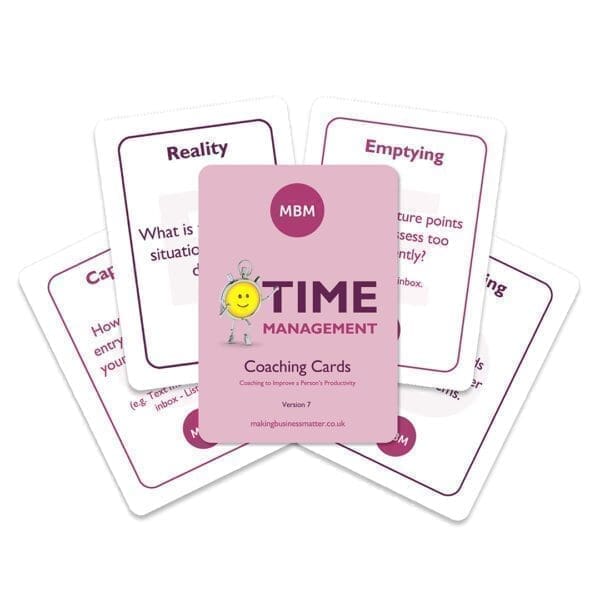Understand the Importance of Team Coaching to Achieve Company Goals
Every team needs direction, growth and development. This is where team coaching is a great approach to making those happen. But, how does it all work? And, why is it necessary?
In our article, we will look at all aspects of team coaching. Here, we will explain what team coaching is all about. Next, we will look at the importance and benefits of team coaching, as well as potential barriers. Then, we will introduce you to some best practices. These approaches will make team coaching more successful for all involved.
What is Team Coaching?
Team coaching is an effective way to develop multiple members of your team together. Here, you have a single coach working with a group. The participants can be employees or leaders. Team coaching would tend to include similar levels of expertise and experience. In that way, you coach at one level at a given time.
Like a sports team, companies need their team to perform at the highest possible level. We hire individuals with great skills, knowledge and talent. However, how do they perform as a team? Are they a united group? If not, then team coaching can help make that happen.
Here, we take the group as a unit to develop together. By going through the process of team coaching together, they can unite more effectively.

Its Importance?
Team coaching is important on many levels. I have seen from personal experience the difference team coaching can have on a group.
1. Problems and Solutions
For example, imagine you have some communication issues in the team. This can be addressed during the session. The group can open up together about the causes of the difficulties. Also, they can use the time in team coaching sessions to work together to find solutions. In this way, they are all part of the problem-solving process.
Sticky Learning ® is 7 times more effective than 1-day training courses. Plus, you will get a Chain of Evidence proving your Return on Investment. Discover soft skills training that changes behaviours long term.

2. Dynamics
Having conducted many team coaching programmes, I have also seen an improvement in the team dynamic after sessions. Last year, I ran a programme for leaders at the same operational levels but from different departments. Before the programme began, each leader was very focused on their own areas of responsibility. This would include blaming other leaders when issues arose.
However, as the programme progressed, there was a visible shift in the team dynamic. By participating together, they created a better understanding of the different challenges they each face. Therefore, when issues occurred later, there was increased empathy and consideration for their colleagues.
3. Confidence
Another difference I saw by conducting team coaching was the increased confidence levels in some participants. One supervisor who attended showed the greatest improvement. During the first session, he rarely spoke, simply observing the more talkative participants. However, as the programme progressed, he started to find his voice. Seeing him become more confident really made a lasting impact on me. To this day, his confidence continues to grow from strength to strength.
4. Conflict
Additionally, I have seen team coaching help with conflict. Because the group go through the process together, there is a greater agreement created during the programme. This doesn’t mean that everyone now agrees about everything. That is unrealistic. Instead, what we see are individuals more ready to listen to different opinions and viewpoints.
Also, there are fewer arguments as they are now listening more. They give others the time to share their opinions. Also, the responses tend to be less emotional or aggressive than before.
I cannot emphasise enough the importance team coaching can have for the team and the individuals involved. Let’s look at some of the main benefits that occur as a result of team coaching.


>> Time Management Coaching Cards <<
Benefits of Team Coaching
There are multiple benefits available to the company from team coaching. These benefits include the following:
1. Improved Collaboration
With team coaching, we see the team working better together. As they develop and grow through the team coaching process, they create stronger bonds. These bonds will allow the team to collaborate more effectively. It is important that every team build on these connections. Otherwise, you will see gaps appearing in the team dynamic. Team coaching helps make this happen.
2. Effective Team Communication
As the team journey through their coaching together, their communication skills improve. They are more connected. Here, we see them better ready to listen to the ideas and opinions of others. Also, they are more open to sharing concerns or issues. These communication skills are enhanced by both the sender and receiver. Participants start to actively listen more. They are more willing to let others in the group share and have their say. We also see more respectful conversations happening than before.
3. Better Performance
As the team coaching continues, we see improved performance from those involved. Skills and knowledge are enhanced. Therefore, everyone participating improves different areas of their individual performance. In turn, this supports the overall performance of the team.
Imagine a member of the team who struggled to meet deadlines. As a result, they would hold others back and create potential conflict. Now, as a result of team coaching, they have been given the skills to manage their time better. Now, they know how to prioritise and meet the necessary deadlines. Picture the impact that will now have on the team as a whole. There will be a better flow of work and less risk of conflict happening.
4. Achieve Team Goals and Objectives
Through improved performance, teams work together to achieve their goals and objectives. There is better direction and understanding for all involved. Team coaching creates improved group effort and support throughout the team. Therefore, the team is more likely to stay on course, meet deadlines, and achieve better success.
So, as you can see, team coaching provides many important benefits to the team. Also, the individuals grow and develop throughout the process.
Barriers to Team Coaching

Despite knowing the multiple benefits, many companies still fail to implement this coaching coaching. This can happen for a number of reasons as discussed below.
1. Lack of Leadership Buy-In
The first barrier, and most common, is that senior leadership don’t see the need. They fail to understand the benefits. So, when the decision-makers are not convinced, team coaching will not happen. Therefore, leadership buy-in will be essential for team coaching to be made available.
2. Time
So, we saw that not everyone appreciates the difference team coaching can make. In fact, many see it as a waste of time. Instead, they expect the time that would be used for coaching to be used in general daily tasks and duties. As a result, team coaching is not given the proper level of focus and attention.
3. Finances
Some companies would like to invest in team coaching. However, their budget doesn’t allow for it. They fail to look for possible barter options or other alternatives to cash investments. Instead, they simply skip over the idea of team coaching. They consider it unattainable.
4. Interest from Participants
Here, we have the time and money. Also, leaders are on board and understand the need and benefits. However, we don’t have the participant buy-in. They don’t have an understanding of what team coaching can bring to them as individuals and as a team. This can stop team coaching from being effective even when it happens. This barrier needs to be overcome through proper preparation and explanation.
5. Effectiveness of the Coach
So, we have the money, time and buy-in from all involved. However, without an effective coach, all efforts will be wasted. Therefore, do proper research to find the right person. Ensure the coach understands the needs of the team. Also, have the team coaching programme tailor-made for your specific requirements.
Best Approaches for Success
There are a number of tactics we can apply to make team coaching successful.
1- Explain Expected Outcomes
Before team coaching begins, set clear expectations for the participants. This includes attendance, pass grade for completion and participation. These guidelines will help create structure and accountability.
Also, have a written programme that participants can easily refer back to. This way, everyone involved can track what is happening when in the programme. It helps people stay focused and on track throughout.
2- Conduct Regular Checks
You need to make sure the programme is progressing as planned. This includes regular updates with the coach and attendees. Be prepared to receive both positive and constructive feedback. Allow open, honest feedback. And, make notes of any improvements that can be made moving forward. That could be for the current group or future participants.
3- Analyse the Impact of the Programme
During your checks, see what changes and improvements the team coaching programme is creating. How are individuals within the team performing as a result of the course? Also, how is the team as a whole performing now?
C.O.A.C.H. for Great Results in Team Coaching
In order to get the best results from team coaching, we need to C.O.A.C.H.

1- Consider Your Options
First, consider the different options available for your team coaching. You should look at ACE: Audience, Content, Expertise.
Audience:
Know who should attend the team coaching programme. Create sub-groups where needed for more focused topics. Also, ensure you select people who need to attend. This might be for improvement in their current role. Also, it can be part of a personal development plan for career growth.
I would recommend mixing between departments. There is a greater chance to see things from different perspectives.
When considering the group dynamic, be careful about mixing levels that are very distant in the organisation. I have experienced junior staff not wanting to share when executive-level leaders are present. However, I have also seen junior staff try to hijack sessions when senior leaders are present. Here, they try turning them into complaint sessions instead. Try to strike the right balance by knowing your audience and how they may act during sessions. We want everyone to learn something from the experience.
Content:
Next, decide on the topics that are required for the team coaching programme. Analyse performance and gaps. Then, select the topics based on the current needs of the team. It is important to get a good mix of topics. We want topics that are relevant to team growth. However, we also want the content and delivery to be interesting and engaging. Discuss with the coach the required topics so your needs are met.
Expertise:
Then, select your coach. Decide if you will use an internal or external coach for the programme. Remember, the right coach will make all the difference in terms of engagement and delivery. So, choose wisely. Take your time to ensure you have made the right choice for your needs.
Choosing the right coach can make or break the success of the programme. I attended a 5-day leadership course once. We had a facilitator who made no effort to get to know us. During breaks, they would disappear or be on their phone. They often got our names wrong, even by day 3! And, there was very little in terms of group discussions and activities. It really created a negative impact on the overall experience. As you can imagine, we didn’t use that provider again. So, choose wisely.
2- Organise Your Programme
Now, you need to get organised and put a plan together for the programme. For team coaching to be successful, there must be structure and direction. Plan properly in terms of venue, time frames and assessments.
Venue:
Choosing the right venue is important. It needs to be conducive to learning. Select a venue where participants can feel comfortable. Avoid any venue where noise and distractions will interfere with the team coaching experience. Instead, choose a venue that will stimulate creative thinking, group discussions and openness.
Time Frames:
Short courses can be intense and keep the participants engaged. However, they can also feel overwhelming for some. Often, you see information overload occurring. On the other hand, long courses can cause some participants to lose interest. Long gaps between topics can cause a disconnect from the overall programme to happen. Therefore, you need to find the right balance that suits the participants and the team operations.
Assessments:
It is important to check the effectiveness of learning. Therefore, you must decide what type of assessments, if any, will be included in the programme. From personal experience, I recommend using a mix of practical and theoretical assessments. Also, I recommend conducting assessments during the programme as well as at the end.
3- Action the Plan
You have everything ready, now it’s time for action. Lead the programme from start to finish. Ensure you are personally present on launch day to show your support and encouragement. Pop in during a tea break from time to time to see how it is progressing. I know from personal experience that this is appreciated. And, it is a less formal check when participants are more relaxed. Therefore, they will provide more honest feedback about the programme.
4- Celebrate Successes
As soon as the programme has launched, start monitoring improvements. These can be seen and heard when the participants put what they have learnt into practice. As a leader, celebrate and recognise even small steps in the right direction. Avoid waiting until the end of the programme. Instead, start early to motivate those participating.
5- Handle With Care
We know from experience that everyone in the team is different. Therefore, for team coaching, you may have different reactions and progress. However, it is your role as the leader to be there for everyone. Avoid showing favouritism to top performers. This can demotivate others in the group. Instead, give equal attention to all. In fact, provide additional support and encouragement to those who may have fallen a bit behind. They need your help more. Therefore, handle care along the team coaching journey.
Wrap Up

So, there you have it. Team coaching really can make the positive changes you are looking for to achieve better team results. Start today and you will already be heading in the right direction for improved team efficiency and performance.
Check out our collection of coaching tools on Amazon.




